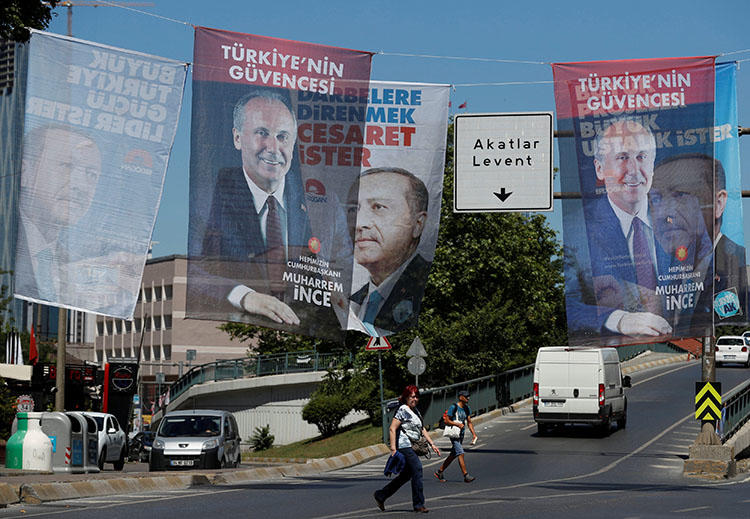Journalist arrested
A court on June 11 ordered Berzan Güneş, a reporter for the pro-Kurdish Mezopotamya news agency, to be arrested pending trial, his employer reported. The indictment accused Güneş of “making propaganda for a [terrorist] organisation” and presented as evidence the journalist’s social media posts, going back to 2014, according to the report. The posts included news stories about Turkish military activity in the Syrian cities of Kobane and Afrin, and a report by the journalist Robert Fisk. Prosecutors claimed in the indictment that Güneş could not be found to testify during an investigation into him. The journalist’s lawyer denied that claim and said his client offered testimony when he was called, according to reports.
Detention period extended
A lawyer for Ece Sevim Öztürk, the chief editor of Çağdaş Ses, a pro-opposition CHP (Republican People’s Party) news website, said on June 13 that prosecutors extended Öztürk’s detention period for another week, the independent news website Bianet reported.
Police detained Öztürk in Istanbul on June 8. Authorities have not provided a reason for her arrest, according to her lawyers.
Öztürk was detained shortly after the ultranationalist news website Odatv and pro-government daily Yeni Şafak accused her of being involved with the so-called FETÖ group, which the government blames for the failed attempted coup in 2016, Çağdaş Ses reported.
In a statement released today, the journalist’s lawyers said she was not questioned during her first week in custody, Çağdaş Ses reported. The lawyers added that Öztürk reported on the failed coup using available sources such as court documents, and has practiced nothing but journalism.
Öztürk, who has 65,000 Twitter followers, reports on allegations about the failed coup attempt.
Turkey bans Periscope
A court ruled that access to Twitter’s live video sharing platform, Periscope, is to be blocked in Turkey due to copyright violation, the Globe Post reported on June 12. The court found in favour of a local communication and production company named Periskop (Periscope in Turkish) which filed a complaint against the platform.
Journalists in court
- An Izmir court sentenced Ümit Zileli, Nagehan Alçı and Rasim Ozan Kütahyalı to 105 days in prison, commuted to fines, for speaking about torture in Diyarbakır prison during the eighties, according to columns Zileli and Alci published about the case. The court found that all three journalists “insulted the memory of” Esat Oktay Yıldıran, a former prison warden, when they spoke about the case on the pro-government Beyaz TV in recent years, according to reports. The reports did not specify how much the fines are.
- A Diyarbakır court today accepted an indictment accusing seven journalists of “making propaganda for a [terrorist] organisation” or “making targets of those who have assigned to combat terrorism,” over news reports they shared on social media, the Mezopotamya news agency reported. The defendants face up to three years in prison if found guilty. The trial is based on a complaint filed by General Musa Çitil, a regional gendarmerie commander during clashes in the Sur district of Diyarbakır in 2016, who was previously acquitted of charges of killing killing 13 civilians in the 1990s. Ömer Çelik, former news editor for DİHA, Çağdaş Kaplan, Hamza Gündüz, Selman Çiçek and A. Vahap Taş, former reporters for DİHA, İnan Kızılkaya, former responsible news editor for Özgür Gündem, and Kemal Sancılı, former publisher of Özgür Gündem, were charged with “making targets of those assigned to combat terrorism” after sharing the reports on social media, and Çiçek faces an additional charge of “making propaganda” over his social media activity.
- The official Anatolia Agency has filed a criminal complaint against Enver Aysever, seeking 5,000 Turkish lira (US$1,075) damages from the journalist for “violating personal rights via press” after Aysever accused the agency of “playing tricks” while reporting at a TV debate he attended, the online newspaper T24 reported on June 11.
